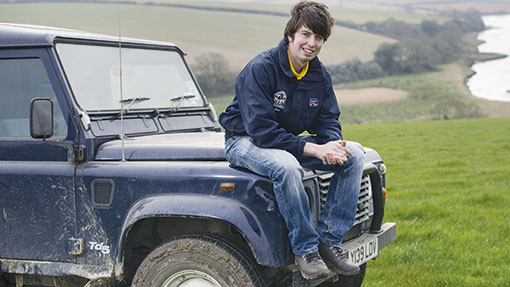Farmer Focus: Family farms under the microscope

Another month, another crop. Maize is looking really good and the stubble turnips are getting there. Despite problems with initial establishment, we’re hopeful they will recover.
With the dash of rain we have had recently I can hear them out in the field squealing in delight. We have also got some brewers grains on contract and all of this will offer us some interesting feeding options this winter.
Much has been made lately about how dairy farms are becoming more specialised – either larger, high-input herds, or more grass-based and spring-calving ones. It seems the middle-of-the-road, family-run farms might be squeezed out, or deemed unprofitable. It would appear the family-run farm cannot compete in regard to lowering its production costs. Indeed, this has been mentioned in the past by farming ministers and it has been questioned if farmers even know what their production costs are.
Read more from our other livestock farmer focus writers
In my humble opinion I’m not so sure that the production costs of a family-run farm are entirely accurate. I think they’re far too low. The hours put in by mother rearing calves as well as her job, and the hours put in by the children after school or their full-time job often go unaccounted for on many farms. If the owners were to pay themselves properly, I think the costs would go up even more.
This isn’t to say that family farms are perfect and holier than thou. And far be it for me to start getting romantic about the subject. But businesses change and it’s important they are able to move with the times.
In some cases this might not have happened. However, the industry needs family farms. The dedication of the staff is unparalleled and, at times, there’s no end to the working day. They can be incredibly resilient and are able to take a long-term view on the business and the land that it inhabits and not make knee-jerk reactions based on market predictions and current prices.
The pride taken by each member is valuable PR in a time when farming methods are more under the microscope than ever.
Ross Symons farms 200 dairy cows, including his own small herd of pedigree Holsteins, with his parents near Truro, Cornwall. They are converting their year-round calving herd to autumn block calving
